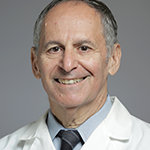In this regard, she acknowledges the benefit of practicing rheumatology in a co-management clinic. “Part of our job is to collect a patient’s profile of risk factors. Then we can build our team (bring in other specialists) to help address these factors,” she explains. “I have dermatologists, cardiologists and psychologists. I have a smoking cessation program. We see these patients over a lifetime, and we help them prioritize their health issues. So if obesity needs to be prioritized because they’re cycling through a lot of medications and not improving, they may consider getting to a more normal BMI. If a patient is in a low disease activity state with stable exams, labs and imaging, I may prioritize the psychosocial aspects for that patient rather than escalating DMARDs. It’s just not one size fits all.”
Therein lies another challenge. How many patients in the U.S. have access to a team of specialists to help resolve a complex and multifaceted problem like psoriatic arthritis with obesity? How many rheumatologists have the resources to gather a team, much less the time to oversee team-based care?
“I have the luxury of a full hour for a new patient visit and then 20 minutes or so for a return patient visit, which not everyone has,” acknowledges Dr. Ogdie. Still, it is not enough. Penn is starting a single-arm trial funded by a grant from the Rheumatology Research Foundation testing a new model that, she says, “basically takes it out of the doctor’s hands” by having a nurse or nurse practitioner handle regular visits. At Dr. Ogdie’s office, a nurse practitioner takes a full day of telemedicine calls for existing patient check-ins once a week. Education resources for the patient, such as handouts, also carry some of the load.
Finally, what does the current U.S. health system allow? “It would be great for people to understand the costs of obesity in psoriatic arthritis because insurance companies should really be thinking about covering those costs,” says Dr. Ogdie. “As it is, it’s hard to get people to physical therapy because of the high copay, and patients often can’t get coverage for a nutritionist unless they have cancer. They can’t get the mental healthcare they need because our current health system isn’t set up to help. Those are the kinds of things that need to change to help these patients.”
Linda Kossoff is a medical writer based in Los Angeles.



